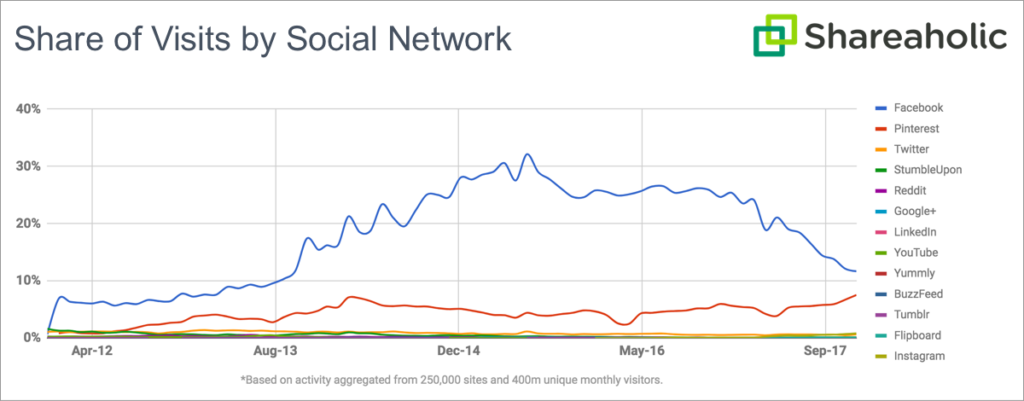When I first started a blog in 2009 and social media was relatively new, Facebook and Twitter (and other smaller social media) were considered to be outposts from your main blog/website. These social networks were ways to get traffic back to your blog posts. Most of the engagement came in blog comments not in social media posts.
Things have drastically changed in the last ten years.
I know a lot of authors, traditional bloggers, and content creators who have seen a big drop in traffic from social media. I don’t check these numbers often, but I just looked at Google Analytics and I see a 40% drop in traffic from Facebook this year compared to last year.
This is pretty consistent with what research is showing. Check out this drop in traffic from Facebook across a large number of websites:

(Source: Buzzsumo)
We could either complain and continue doing thing the way we’ve always done them, or we can adapt and change to start doing what works.
What changed?
The outpost analogy doesn’t work anymore.
Social media are no longer the spokes on the wheel of your website.
The only way to win on social media today is to create native content.
Create content that people expect on each platform rather than posting links back to blog posts or articles all the time.
This is why videos and images without links perform so well on Facebook.
Instagram doesn’t even allow links in posts. You have to get creative with the link in your profile.
Twitter posts that perform best are creative, witty comments and observations not window dressing for longer articles that people aren’t interested in reading while on the platform.
The creators of each social network, naturally, want to keep users on their apps. They don’t want to send people to your website. Why would they? It goes against their interests.
Find out what people want to do while they are in each app and create accordingly.
Don’t worry about traffic back to your blog.
Create things that keep people on each network. That’s what the apps are going to value above content that takes them off the platforms.


